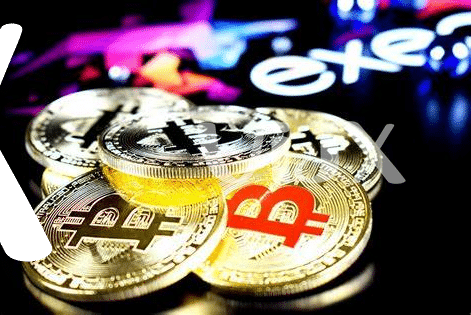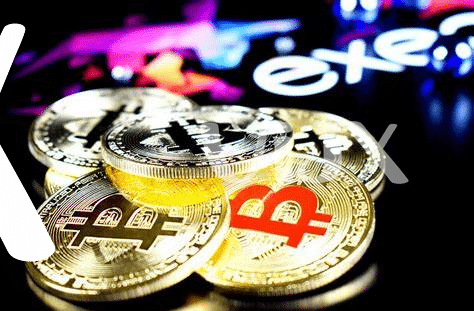Evolution of Money Transfers in Poland 🌍

Over the years, the landscape of money transfers in Poland has undergone significant transformations, shaped by advancements in technology and changing consumer preferences. Traditional methods, once cumbersome and time-consuming, are now being challenged by more efficient and convenient digital solutions. The shift towards online platforms and mobile applications has streamlined the transfer process, making it easier for individuals to send and receive funds both domestically and internationally. With the increasing digitalization of financial services, the future of money transfers in Poland appears to be moving towards a more interconnected and accessible system that prioritizes speed, security, and cost-effectiveness.
Rising Popularity of Bitcoin in Poland 💰
In recent years, the adoption of digital currencies, particularly Bitcoin, has been steadily increasing in Poland. This rise in popularity can be attributed to various factors, such as the growing awareness of blockchain technology, the desire for more secure and efficient payment methods, and a shift towards embracing financial innovations. As more individuals and businesses in Poland recognize the benefits of using Bitcoin for transactions, its use as a reliable alternative for traditional money transfers continues to gain momentum. The accessibility and decentralized nature of Bitcoin have contributed to its appeal among the tech-savvy population in Poland, positioning it as a promising solution for cross-border money transfers in the country’s financial landscape.
Benefits of Using Bitcoin for Cross-border Transfers 🌐

As businesses and individuals in Poland look towards conducting cross-border transactions, the utilization of Bitcoin presents a myriad of advantages. One of the key benefits lies in the speed of transactions facilitated by Bitcoin. Traditional cross-border transfers can often take several days to process, especially when involving multiple intermediaries and different currencies. With Bitcoin, transactions can be completed within minutes, regardless of the recipient’s location. This not only enhances efficiency but also provides a seamless experience for both senders and receivers. Additionally, the transparency and security of Bitcoin transactions offer a level of trust that is unparalleled in traditional banking systems. Every transaction is recorded on the blockchain, ensuring a high level of security and reducing the risk of fraud or unauthorized access.
In the realm of cross-border transfers, the decentralized nature of Bitcoin eliminates the need for intermediaries such as banks or payment processors. This not only reduces transaction costs but also empowers individuals to have more control over their money. Furthermore, the borderless nature of Bitcoin enables transactions to be conducted across different countries without being subject to stringent regulations or fees. As the adoption of Bitcoin continues to rise in Poland for cross-border transactions, the benefits of speed, security, transparency, and cost-efficiency will undoubtedly shape the future landscape of money transfers in an increasingly interconnected world.
Challenges and Regulations Surrounding Bitcoin in Poland 🚫

Bitcoin faces a unique set of challenges and regulations in Poland. While the digital currency offers potential for seamless cross-border money transfers, regulatory concerns loom large. The lack of a clear legal framework poses obstacles for mainstream adoption and raises questions about the accountability and security of transactions. Furthermore, the fluctuating nature of cryptocurrency market values introduces an additional layer of complexity for users navigating the regulatory landscape. To delve deeper into the legal intricacies surrounding Bitcoin in cross-border transactions, explore the evolving laws and regulations in Rwanda through this insightful article on bitcoin cross-border money transfer laws in Saint Lucia.
Future Implications of Bitcoin on Money Transfers 🚀
In the dynamic landscape of money transfers, the advent of Bitcoin in Poland ushers in a new era of possibilities. With its decentralized nature and borderless appeal, Bitcoin is poised to revolutionize the way cross-border transactions are conducted. As more individuals and businesses in Poland embrace this digital currency, traditional financial systems may need to adapt to keep pace with this evolving trend. The future implications of Bitcoin on money transfers signal a shift towards greater efficiency, lower costs, and increased accessibility on a global scale. It empowers individuals to take control of their finances with unprecedented speed and security, marking a transformative shift in the realm of international remittances.
Conclusion: Embracing the Bitcoin Revolution 🌟

The future of cross-border money transfers is poised for a significant transformation with the increasing acceptance of Bitcoin in Poland. As individuals and businesses alike recognize the advantages of this digital currency in facilitating seamless transactions across borders, there is a growing momentum towards embracing the Bitcoin revolution. With its decentralized nature and lower transaction costs compared to traditional banking systems, Bitcoin offers a promising avenue for expediting international payments while bypassing intermediaries. However, amidst the optimism surrounding its potential, there are also regulatory challenges that need to be navigated to ensure a secure and compliant environment for its usage. Despite these hurdles, the evolving landscape of cross-border money transfers in Poland indicates a shift towards incorporating innovative solutions like Bitcoin, paving the way for a more efficient and inclusive financial ecosystem globally.
bitcoin cross-border money transfer laws in Rwanda
